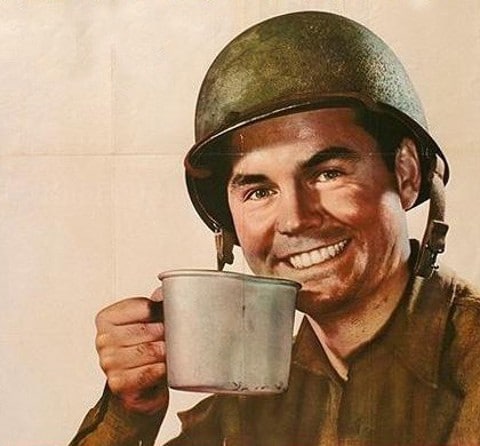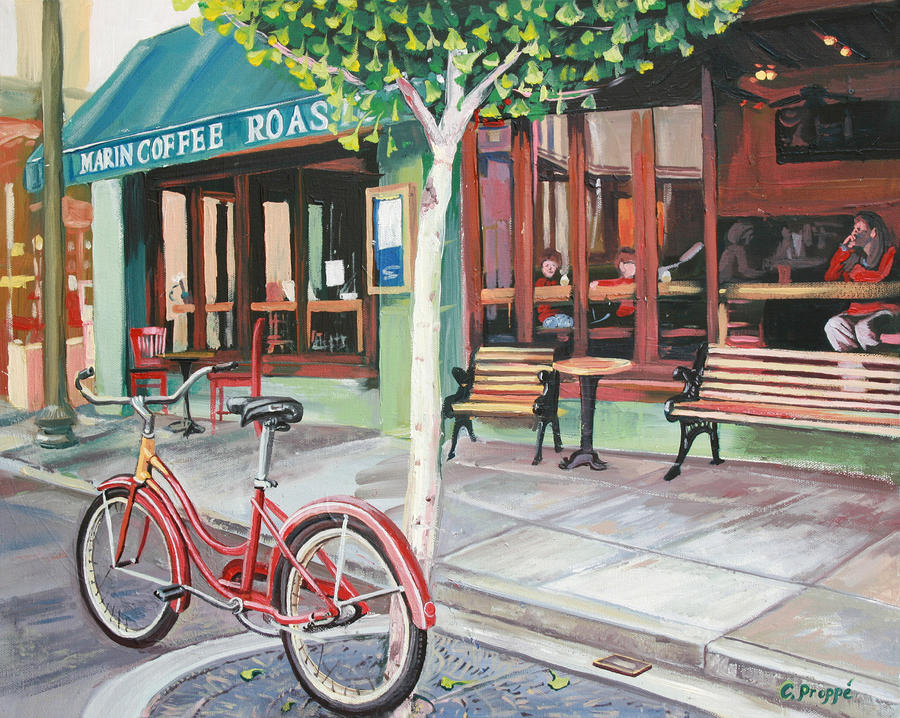I love coffee. Since I was a boy, studying for the Advanced Placement Physics test in high school, my affection for this drink has known no bounds. Through college, it was the muse to my philosophical meanderings and stimulated both thoughtful and humorous conversations between my friends and myself. And in the working world, I greet it every day as the encouragement to welcome both the blessings and challenges of that day, yet to come.
In the past, I have often been accused of “coffee snobbery”. I prefer the term, coffee connoisseur. This term suggests that I respect the history and traditions surrounding coffee, whereas the former term implies that I arrogantly abuse my knowledge of coffee to compensate for my own lack of, shall we say, “beans.” I assure the reader: that is not the case.
As an example of my respect for the traditions surrounding coffee, I bring to your attention a misnomer regarding coffee proper in our culture. When you ask a friend to grab a cup of coffee with you, what you really mean is to grab a latte, an Americano, a mocha, or, saints preserve us, a “frappuccino”. It is very rare that I find myself sitting in a coffeehouse with a cup of freshly-brewed traditional black coffee before me. The above mentioned beverages are actually espresso blends, not made from traditional drip coffee makers.
Though I will be the first to agree that espresso possesses a rich, poignant flavor to it that is not found in regular coffee, it is a dainty European beverage. To me, it is the drink of the high-class and wealthy. With their menu consisting of either overpriced espresso drinks or “freshly brewed coffee”, your next visit to the nearest Starbucks will either leave you with a small fortune missing from your wallet or a simultaneous regurgitation and loss of bowel control.
While I mention Starbucks, I would be remiss if I refrained from expressing my disdain for the establishment. They either fleece you or they “release” you. But I have disputes with Starbucks on crimes against the culture of coffee.
Starbucks has commercialized the coffeehouse. With their political awareness and patented coffee cup and heat sleeve design, they have infringed upon the peace and warmth that was once the local coffee shop. Starbucks has driven out the truly conscious and thoughtful people and made the coffeehouse into a rabble house of mindless, unimaginative pretenders. It is now considered “trendy” to drink Starbucks coffee, to hold the branded, recycled cup and carry it as a symbol of status, long after the liquid essence is gone. I once asked a man that I knew was a regular Starbucks coffee drinker why he preferred Starbucks coffee.
"It's because I'm sold on the brand." he grinned.
If I manufactured, packaged, and marketed mediocrity, despair, and misery in a buy-one-get-two-free combo pack, would you buy that too?
Among the throngs of people, there is something lonely about sitting in a Starbucks, knowing that maybe a few blocks away, there is another one, exactly like it. There is nothing unique about where you are sitting at this moment. For centuries, coffeehouses have been the source of inspiration for writers, actors, inventors, scientists, and every other occupation. And when one is sitting in a commonplace room that has been replicated in other locations a thousand times over, with overpriced, bitter hot water, and the noisy, zombie rabble, inspiration is very hard to find. I have achieved no manner of peace sitting in a Starbucks.
However, for me, the culture and traditions of coffee are alive wherever I call home. In fact, coffee has become a necessary part of my home. To many, this may sound radical, but coffee has been as integral a part of my history as it has been in all human history. Although the worldly pleasures of drugs, sex, and alcohol beckon temptingly, coffee is my innocent release. It is a necessity to maintain a caffeine habit for many, but I have no habit to maintain. It is just second nature.
The true traditional roots of coffee lie in its reputation as the drink of the working man. It has become a great American tradition in the workplace. Many people consider it just a caffeine fix, but I am sure that those same people would not substitute it with an energy drink. They do not drink it simply for its utility. It is an organic and wholesome stimulant.
Coffee is an agent of relaxation, taste and smell. I would wager that nearly everyone that has experienced the smell of coffee has wanted their kitchen to perpetually smell like a coffeehouse. You imagine yourself just breathing in that toasty aroma every day and feeling comfort. It slows your breathing to a relaxed rhythm; your days begin and end with that calming scent.
In my own experience, coffee stimulates social, intelligent conversation in a leisurely setting. As the smell and taste encourage relaxation, coffee is a catalyst for creating a comfortable atmosphere where friends can come to discuss their thoughts and opinions. Were I ever to become a philosophy teacher, I would have enough coffee in my classroom to give to my students. It turns what could be a boring, uninteresting college requirement lecture into an energetic exchange of ideas, a true search for the truth and right understanding. I could be wrong about this strategy, but at least none of my students would ever fall asleep in class.
Speaking of sleep, I frequently enjoy coffee while listening to classical music. Some might say that there is no other way to listen to classical music without falling asleep from boredom, but they are wrong. There is a true fittingness to this combination.
As mentioned in the previous paragraphs, coffee is an intellectual beverage. Scientifically, the caffeine in coffee increases the effectiveness of nervous impulses in the body, making you more alert and quicker to absorb information. Smell, flavor, and chemical composition combine to create an atmosphere of scholarly expedition.
Classical music, as well, is an intellectual experience. If you have not heard of the “Mozart Effect”, look it up. For at least two decades, classical music has been a hot topic in developmental psychology as to whether or not it makes one smarter, more intelligent, or whatever terms they have created to describe the phenomenon. Most people I have spoken with say that they listen to classical music primarily while they are studying… or trying to fall asleep, unfortunately, that was the runner-up usage. Either way, it proves, at least to me, that classical music at least allows one to focus their intellectual efforts and drive out distractions. Combined, coffee stimulates the mind without assaulting it, while classical music stimulates the senses without overloading them. They strike the perfect balance for intellectual pursuits, of which I am very fond.
To conclude, coffee has a long tradition. I do not believe that I invented it; I would not be nearly clever enough to pull that off. But there is a deep integrity and culture behind the simple mug of hot coffee that can be enjoyed in the peace and quiet of the little coffee shop on the corner. With the first sip of the day, you sigh and smile, and it almost sounds like someone nearby is playing the “Morning” piece from Grieg’s Peer Gynt Suite just for you.



No comments:
Post a Comment